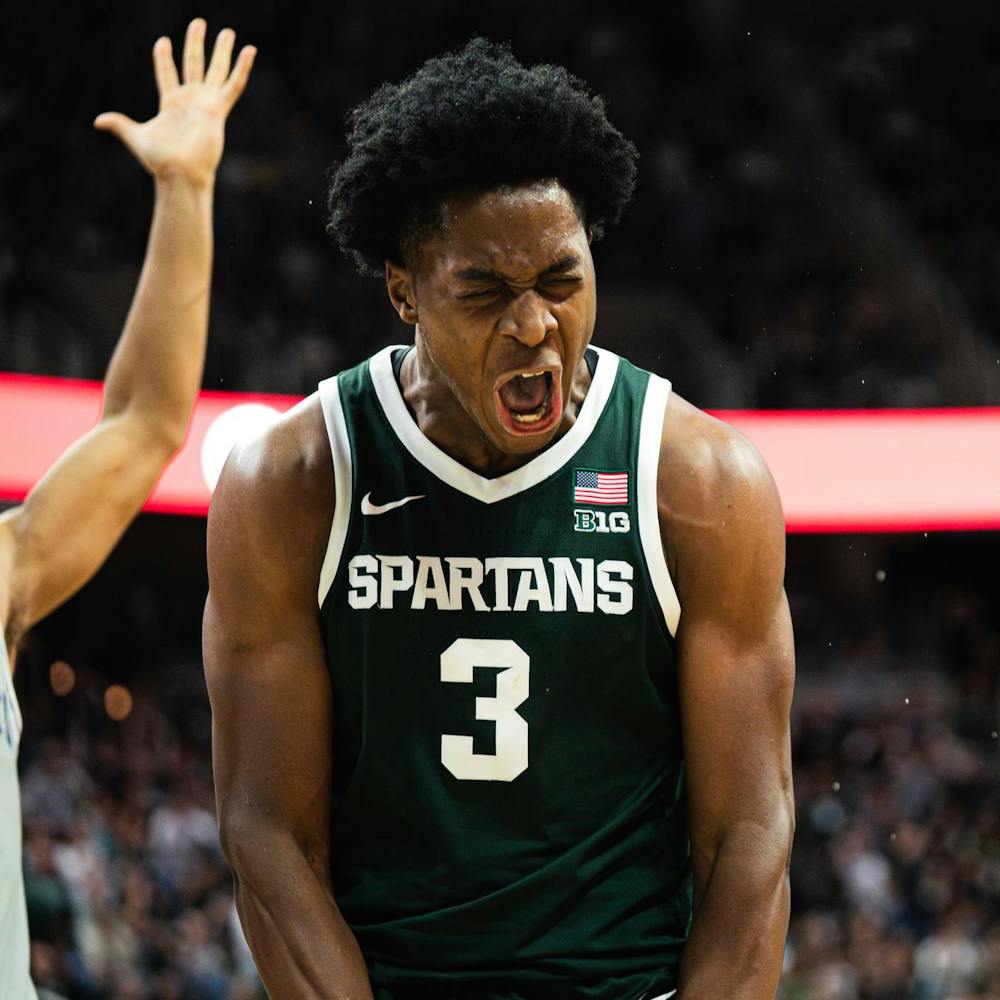An attempt to rid campus of the stigma behind mental health is in full swing at MSU.
During Mental Health Awareness Week, multiple organizations around MSU will work on ways to release the stereotypes and provide events, services and stories to add to the mental health discussion on campus. One of the most prominent influences impacting mental health is the MSU Counseling Center, currently being renovated into a new integrative health model, Counseling and Psychiatry Services, or CAPS.
“Long-term plans include an increased focus on mental health education and primary prevention as part of a broader health and wellness system,” MSU Counseling Center Director Scott Becker said in an email. “This will allow us to serve a wider range of students by promoting positive mental health prior to their need for individual treatment.”
As different events during the week, such as Embrace the Rain, focus on the discussion of mental health, students spoke out about their own struggles with mental illness. 
“I decided to speak after I had taken a medical withdrawal and I was academically recessed from MSU for a year because of my struggle with depression and anxiety,” social relations and policy junior Colin Wiebrecht said. “I thought that maybe by speaking about it, I can help not only myself but other people who were listening and encourage people to not hide their struggles and seek help if they needed it.”
Wiebrecht avoided the Counseling Center and sought care off campus because of the criticisms of waiting time and shortage of counselors, both issues the new renovations address.
How the Changes Address the Criticism
Many of the concerns with the MSU Counseling Center were addressed in a petition drafted last year by political science junior Aaron Stephens, founder of the Coalition of Higher Mental Health Standards.
“At the time that we formed the coalition, the Counseling Center did not even have a director,” Stephens said. “There was a two and a half year vacancy in that position, so obviously that was an issue that needed to be solved and that was solved very fast after the petition started, but there are still issues that are happening.”
The petition received 2,000 signatures and support within the first three weeks not only from students, but from staff and faculty as well. It called upon the university to make it a priority to allocate the resources the MSU Counseling Center needed, specifically ensuring the health services will be integrated together, creating shorter wait periods for students seeking counseling.
“When the psychology and psychiatry departments weren’t integrated together, not only wait times for seeing someone in the Counseling Center but then, if you needed that actual medicinal help, you would have to wait another three to four weeks to get an appointment from the psychiatry department to get that medication,” Stephens said.
The Counseling Center and the psychiatry clinic are now being integrated together and combined to form CAPS.
“The new unit is expanding our reach on campus with two embedded mental health consultation positions in the Neighborhoods,” Becker said. “We anticipate increasing the number of counseling staff in the core clinical system as well.”
To address concerns with under-staffing, the staff-to-student ratio for counseling positions for the 2017-18 academic year will be 1 to 2,778.

The new model also addresses the issue of diversity and the ability to accommodate for all student communities.
“Other concerns are that the counseling center staff needs to match or reflect the diversity of our student body,” ASMSU President Lorenzo Santavicca said. “Right now our Counseling Center does a pretty good job with that, but in the student model it’s an ongoing commitment that students want to hear from our leaders of the institution to ensure that students can feel like they are represented in the Counseling Center in terms of their race, ethnicity, sexuality, gender.”
Becker promised to not only continue providing culturally sensitive and multilingual services to international students, but CAPS is also planning to begin sponsoring an online counseling service provided by Morneau-Shepell that offers web and phone based counseling from providers in students’ countries of origin. These providers understand their language and culture and have information about existing on-campus resources at MSU.
Included in the multiple student groups and backgrounds on campus, graduate students hope for the future effectiveness of the MSU Counseling Center and the accommodation of their needs that are different from undergraduate students. Doctoral student Sarah Owocki, whose younger brother committed suicide, seeks long-term counseling and wants to get rid of the stigma behind seeking help.

“You have a built-in reluctance to seek treatment and almost a perception that it’s something for undergraduates and that they wouldn’t be skilled in addressing concerns,” Owocki said.
Future Planning
Owocki said she would might have been part of a “silent majority” of students affected by what’s going on around them, but would be too reluctant to seek help.
“I honestly don’t know if I had been an undergraduate in this environment, if I would have been comfortable seeking services,” Owocki said.
To Stephens, one can only do so much to release the stigma, and the institution and students must work to promote mental health awareness and education.
In the Hands of the Students
“In addition to the more integrated and expanded range of clinical, outreach, and prevention services, I envision a range of efforts on campus to improve the climate for mental health and to encourage dialogue, help-seeking, and student support,” Becker said.
Not only are there student groups and efforts such as ASMSU’s Spartan Support Network, the Mental Health Awareness Club and Stephen’s petition, there are also other choices.
Wiebrecht spent time away from MSU for his mental health by means of medical withdrawal after speaking with an adviser and providing letters from his psychologist, an option available for students at MSU.
“It was a good process,” Wiebrecht said. “I think that if it was made more visible to students, then a lot more students will take advantage of it and use it. It’s kind of hidden in those corners of the MSU website where you have to be looking for it specifically to find it, but I thought it was a good process.”
The MSU Counseling Center and the Students
Becker noted focus groups consisting of student representatives from ASMSU, Council of Graduate Students, or COGS and the Student Health Advisory Council currently serve on CAPS design teams and participate in the planning process.
ASMSU and COGS held student town hall meetings for interactions between administrators, psychiatrists, student leaders and students to generate discussions and express concerns.
Becker said the MSU Counseling Center is switching to CAPS and its location to Olin Health Center by fall of 2017.
“Going forward, I’d like to make sure that the core team that is designing this new model will actively reach out to students and ask for their input, will ask for their opinion and really ask, ‘Is this what you are envisioning for your mental health services?’” Santavicca said. “Because ultimately, the commitment that we’re seeing under this new structure is that it’s all student driven.”





